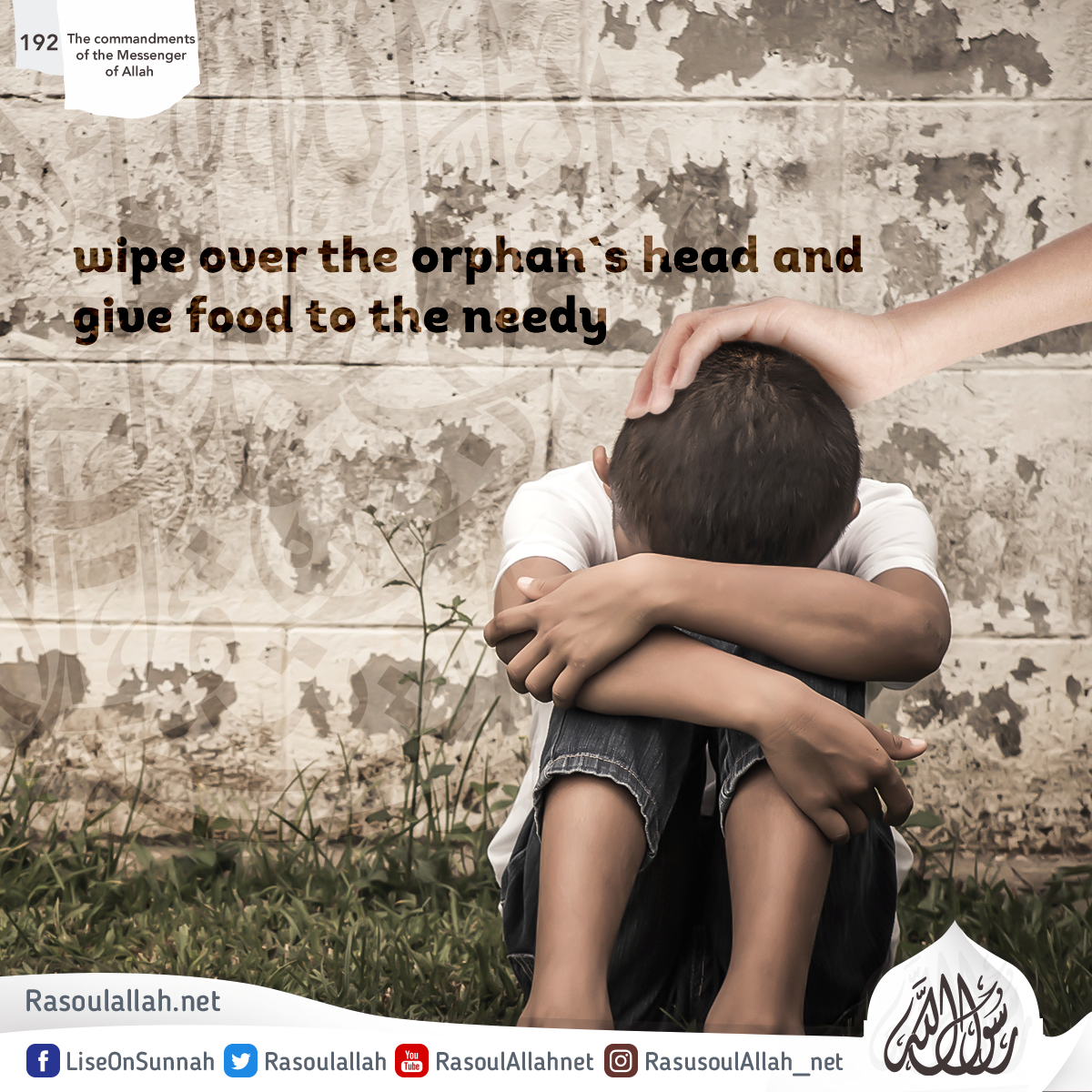Search
wipe over the orphan`s head and give food to the needy

Abu Huraira, may Allah be pleased with him, said: A man complained to the Messenger of Allah from the cruelty of his heart. Therefore, the Messenger of Allah (may the peace and blessings of Allah be upon him ) said:
“ wipe over the orphan`s head and give food to the needy”.
The Prophet ( may the peace and blessings of Allah be upon him ) said:
“Bring the orphan close to you, wipe his head and give him some of your food, for that will soften your heart and fulfil your need.”
Al-Silsilah al-Saheehah, 854.
It is a sign of the man's belief that he recognizes the cruelty of his heart. This is because once the heart is enlightened by the light of Allah, it will be soften by mentioning Allah and responds to the sermons and the lessons he hears. On the other hand, if the faith became weak, the light will begin to diminish according to the decrease of the faith and then the Muslim will feel the cruelty and hardness, but the remaining faith will urge him to search for the cause of the decrease that led to the cruelty of his heart, and calls him to think seriously in rectifying his affairs, and take his way to reform himself with all the determination and ambition until his faith returns to its previous state. Thus, he takes care of himself whenever he feels the cruelty of his heart so that he meets his Lord waving between fearing him and hoping in his mercy.
The Messenger of Allah (may the peace and blessings of Allah be upon him ) said: “ wipe over the orphan`s head and give food to the needy”.
The meaning is clear but includes provisions which we need to know.
Islam, encouraged the wealthy people of righteousness, to sponsor the orphans, to be compassionate to them, to protect their money, and to work on preparing them physically and mentally to become good people.
The Messenger of Allah ( may the peace and blessings of Allah be upon him ) used to exaggerate in taking care and honoring the orphan. He greatly encouraged his companions to treat the orphans kindly, not only because he lived as an orphan and tasted its related bitterness, but also because he felt the need of the orphan to do so.
If the orphan is poor, then feeding him and taking care of him multiplies the reward with Allah the Almighty.
It is permissible for the poor to consume the orphan's money as much as necessary.
It was narrated from 'Amr bin Shu'aib, from his father, from his grandfather, that a man came to the Prophet ( may the peace and blessings of Allah be upon him ) and said:
"I am poor and I do not have anything, and I have an orphan (under my care)." He ( may the peace and blessings of Allah be upon him ) said: "Eat from the property of your orphan without being extravagant, wasteful or keeping it as capital for yourself."
What concerns us in explaining this commandment is that we learn from it how to be compassionate with the orphan, which is a broad word that encompasses all the types of generosity and kindness to him. He who hopes for the reward of Allah shall discipline, educate and prepare the orphan well to enter the field of life with determination and firmness, and know what is useful and what is harmful. Wiping the head of the orphan is an honest expression of love and compassion for him, provided that this wiping is purely for the face of Allaah.
One of the greatest aspects of honoring the orphan is not to remind him of his orphanhood, his poverty and hardship so as to protect him from the psychological problems when reaching the adulthood and mixing with people.

